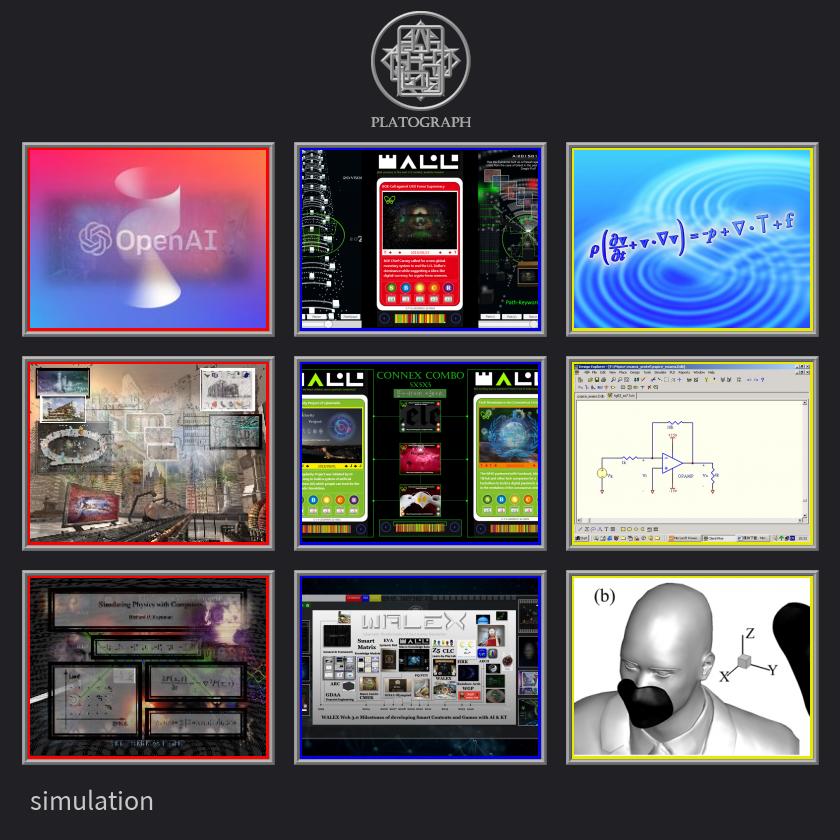
The general discussion from the above documents revolves around various topics related to advanced technology and its applications. Some key points include:
1. Smart Building with Stratified BIM:
- Integrating Artificial Intelligence (AI) and Internet of Things (IoT) in the construction industry through Building Information Modeling (BIM).
- Utilizing lifestyle big data analysis to enhance architectural aesthetics and sustainability.
- Exploring the potential of Quantitative/Generative Artificial Intelligence (QAI/GAI) for efficient building design.
2. OpenAI and Artificial General Intelligence (AGI):
- OpenAI, founded by Elon Musk, aims to develop AGI that benefits humanity without negative consequences.
- Considered a competitor to Google's DeepMind, OpenAI promotes research and development in safe and ethical AI.
3. Hyper-Simulation and Quantum Computing:
- Feynman's concepts of universal computer and cellular automata inspire ideas in quantum computing.
- Quantum computing potentially goes beyond the limitations of Turing machines, enhancing simulation capabilities.
4. Time Travel, Quantum Computers, and Pandemics:
- Exploring the notion of time travel in history.
- Discussing the potential use of quantum computers in preventing future pandemics.
5. Life as a Recursive Video Game:
- Examining the concept of life as a recursive video game with possible connections to simulation theories.
6. Science and Engineering Concepts:
- Introduction to the SPICE (Simulation Program with Integrated Circuit Emphasis) model and its application in circuit design.
- Discussion on the Navier-Stokes equation and its significance in various fields such as aerodynamics, weather modeling, and fluid dynamics.
- Highlighting the use of computational fluid dynamics models to study the effectiveness of facial masks in suppressing COVID-19 spread indoors.
Overall, the documents cover a wide range of topics, including advanced technologies, artificial intelligence, quantum computing, scientific simulations, and their potential applications in different domains.
現代科技正在以快速且跨領域的方式發展,這些科技包括智慧建築、人工智慧、量子計算和模擬程序等等。這些領域之間相互交叉,形成了一個新興的科技網絡。
智慧建築基於建築信息模型(BIM),通過對生活方式大數據的分析,可以進行建築設計的量化和生成人工智能。這不僅可以提高建築的智能化,還可以改善能源和環境的可持續性。
OpenAI是一個由Elon Musk創辦的公司,致力於確保人工通用智能對人類有益並且不會惡意使用。他們的目標是開發出對抗Google DeepMind的技術,以達到人工智能的整體進步。
量子計算是基於物理學家Feynman的理論提出的,可以更好地模擬真實物理系統。這種計算方法可以應用於各種領域,例如歷史研究、預防未來大流行病以及探討生命是否是一個遞迴的視頻遊戲。
模擬程序與集成電路強調模型(SPICE),是由伯克利大學開發的一個計算模擬程序,主要應用於電路設計,可以幫助工程師模擬電路的運行情況。此外,流體動力學模擬也可以用來研究COVID-19在室內環境的傳播方式。
總而言之,這些科技領域的發展擁有著巨大的潛力,可以改變我們的生活和解決重大問題。通過智慧建築、人工智慧、量子計算和模擬程序的應用,我們可以實現更智能化、環境友好的社會,並且更好地理解歷史和生命的本質。
心得:現代科技日新月異,目前的主流以人工智慧為主,同時各式的模擬器也出現了,模擬器使我們可以以不傷害身體的方式體驗各式東西,也更具像化各類災害和想像中的東西,例如恐龍或是災害模擬,抑或是以滅絕的生物,幫助後代了解以前的東西。科技也可以運用在更多方面,無論是服務業、勞工、櫃台、老師,都有可能被機器人替代,然而創新力是目前的機器人無法替代的,因此人類應該加強自身的想像力,不要讓人類的特色"想像力"消失在科技社會裡。
